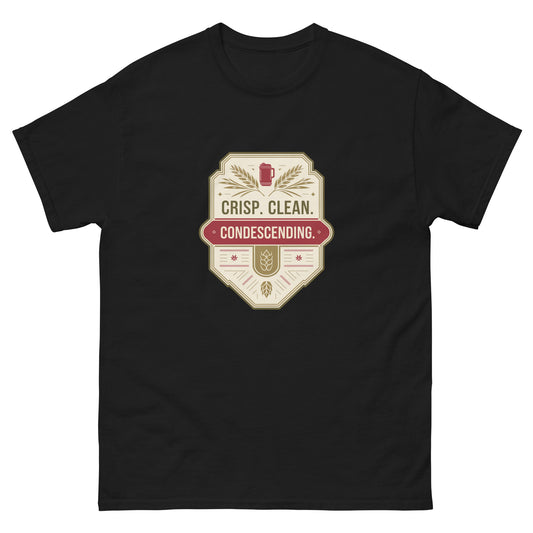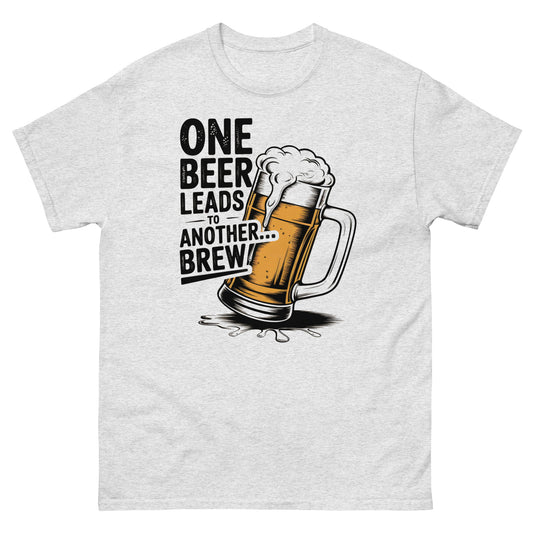The Difference Between All-Grain and Extract Brewing: What’s Right for You?
Share
The Difference Between All-Grain and Extract Brewing: What’s Right for You?
So, you’ve decided to get into homebrewing—welcome to the best hobby you’ll ever have. There’s something magical about cracking open a beer that you made with your own hands. But before you start dreaming of hop-forward IPAs or rich, malty stouts, you’ll need to decide how you want to brew: all-grain or extract.
Both methods can produce cracking beers, but each comes with its own set of perks. The choice depends on how much time, effort, and space you’re willing to invest. Let’s look at both options and figure out which suits your style.
What Is Extract Brewing?
If you’re just dipping your toes into homebrewing, extract brewing is the easiest way to start. This method uses malt extract—pre-made syrup or dried powder—to replace the process of mashing grains. It cuts out a fair bit of the work while still allowing you to create quality beer.
Why Choose Extract Brewing?
- Less Time-Consuming: No need to mash grains, so you can go from start to fermentation in just a few hours.
- Less Equipment Needed: You can skip the mash tun and focus on the basics—perfect for limited space.
- Great for Beginners: The process is forgiving, making it an ideal entry point.
- Consistent Results: Malt extract is pre-prepared, reducing some of the unpredictability of all-grain brewing.
The trade-off? You have less control over the final product compared to all-grain brewing. But don’t let that stop you—extract brewers can still make fantastic beer.
What Is All-Grain Brewing?
All-grain brewing is a step up in complexity but gives you full control over the ingredients and process. Instead of using malt extract, you mash crushed grains yourself, extracting fermentable sugars through a carefully controlled process. It takes more time and gear, but the payoff is huge.
Why Choose All-Grain Brewing?
- Full Creative Control: You get to manipulate every element of the beer, from flavour to mouthfeel.
- Wider Range of Ingredients: You’re not limited to what’s available in malt extracts.
- More Cost-Effective in the Long Run: Raw grains can be cheaper than malt extract, especially for large batches.
- More Involvement in the Process: If you love tinkering and fine-tuning, this is for you.
The challenge? It requires more time, equipment, and attention to detail—things that might not suit every brewer.
Which Brewing Method Suits You?
Ask yourself a few key questions:
- Do you want to make good beer with minimal fuss? Go with extract brewing.
- Are you the type who loves going all-in on hobbies? All-grain could be your calling.
- Short on time? Extract brewing gets you from start to finish faster.
- Love experimenting and tweaking recipes? All-grain lets you play mad scientist.
- Limited space? Extract brewing needs less gear.
Still on the fence? There’s no rule saying you have to choose one forever. Many brewers start with extract, nail down their process, and graduate to all-grain as their confidence grows. Others stick with extract and create amazing beers without ever needing to mash grains.
Ultimately, the best beer is the one you enjoy making and drinking. Whether you’re crafting your own signature ale or just looking for a fun weekend project, starting with the right method makes all the difference. Whatever path you take, we’re here to help with the best ingredients, equipment, and advice to guide you on your brewing journey.
Happy brewing! 🍻

Stay Connected
Join our homebrewing community: Beer and Barrel Society on Facebook
Follow our Facebook Page: Strathalbyn H Hardware on Facebook








